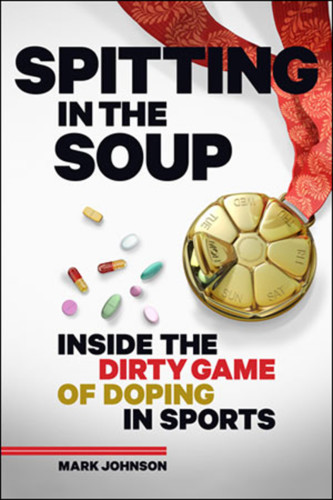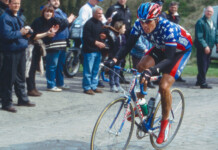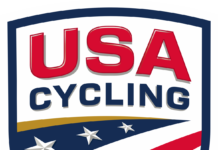By Lou Melini — French Olympic founder Pierre de Coubertin wanted the games to be based on purity and chivalric romance. That idea was quickly squashed as the will to win took over. Whatever it took to win, even if it was poison, was soon the law of competition. Historically, it was the duty of the athlete to take drugs to perform at one’s best. Over time, drug use in sports was demonized. This sequence of events is chronicled in the book, Spitting in the Soup.
The reviews that I read about Spitting in the Soup spoke of the book as a history of doping in sports. It is, in part, a book about doping history, but for most of the book it discusses the conflicting attitudes, policies, laws and knowledge about drugs as they have been used and are currently used in sports. It is, to say the least, a very thought provoking book that is remarkably well researched. Our favorite sport, cycling is frequently mentioned, along with passages from other sporting organizations such a baseball, football, track and field, weightlifting and Olympic sports in general.

I have been interested in doping in sports going back to my high school wrestling days, in particular the 1967-68 wrestling season. I wrestled at 98 pounds during the ‘66-‘67 wrestling season, dropping 8-10 pounds to make weight. I expected to be slotted for the 106-pound position my Jr. year but a new kid moved into the school district that was a little better than I. I made the choice to go back down to 98 pounds, a requirement that meant 10-12 pounds of weight loss after finishing 7th in the county cross-country championship.
On my 3rd visit to physician to be certified at 98 pounds, I finally received the OK along with a prescription for what I remember being told were “vitamins”. The next day after my first dose I spent the lunch hour talking to a teammate about how much we were talking. He also received a prescription for vitamins from the same physician.
I had a fairly successful season beating nearly everyone I wrestled including the number one seeded wrestler at the upcoming district tournament. However I still had difficulty making weight thus missing half of my matches. A few days prior to the districts, I ran out of “vitamins”. I spent the 36 hours prior to the meet overweight, crying, and without any energy. I had one cup of tea and a half-cup of spinach to eat during this time in order to make weight. Needless to say, I got my ass kicked, losing 2 of the 3 matches.
More than twenty years later after this incident, I went back to school to be a Physician Assistant, where I had an “Ah-Ha” moment in my pharmacology class. My vitamins were a very strong dose of “Vitamin A” for Amphetamines! Though I obviously cannot prove that hypothesis, my symptoms fit well enough to support the theory. My story may not be terribly interesting, but what may be of interest is that I have never looked back and thought that I doped or cheated. Perhaps this is in part due to the elapsed time or perhaps that the amphetamines helped me make weight, not enhance my performance, a hair-splitting rationalization.
That dilemma of my (theoretical) use of amphetamines and its associated cheating, are a large part of Spitting in the Soup. Chapter 15, “Amphetamines for All” is where Mr. Jackson states that my prescription for amphetamine was one of “8-10 billion 10-mg amphetamine doses” (in 1969). It seems that the entire country took amphetamines for weight loss, depression and other assorted reasons, an acceptable practice at the time. As an extension of this use of amphetamines, Spitting in the Soup spends a lot of time defining and redefining the morality of what constitutes cheating, legal and illegal drug use, and basically the hypocrisy in our country of sports and performance enhancement.
For local Utahns, there is also a chapter entitled “Supplements: Government-Approved Dope”, that is basically a history of the supplement industry within Utah. Orrin Hatch, our long-time elected senator and protector of the supplement industry, receives a lot of print in this chapter that is alone worth the price of the book.
For me as the reviewer, I found that there is one major aspect of the book to make it a must read. In this day and age what is the “truth” in the news is difficult to discern, as there seems to be a lot of “false news” and “alternative facts”. In Spitting in the Soup, Mr. Jackson does a lot of legwork chasing footnoted citations to the primary source. He skillfully traces the chronology of statements such as “EPO kills” or “doping kills” through time. There are many pages tracing the history of “EPO deaths”. Though you, the reader, may believe that “18 Dutch cyclists died after the use of Epo”, Mr. Jackson follows the paper trail to show that those deaths were no more than rumor and innuendo.
The only documented death (autopsy and drug findings) to drugs in cycling, according to Mr. Jackson, was Tommy Simpson’s collapse and subsequent death to amphetamines and alcohol during the 1967 Tour-de-France, the same year, coincidentally, that I received my prescription. Mr. Simpson’s drug combo produced dehydration and a heart attack. Mr. Jackson also chronicles the death of a Danish cyclist during the 1960 Olympic 100-km time trial. Though reputedly the cyclist died of drug use, there isn’t a shred of evidence to make that claim according to the book. Heat stroke and poor medical care caused the death, but the media jumped on the “drugs kill” bandwagon.
Spitting in the Soup is a thorough and encompassing book about all-things doping. There are interesting historical pieces about drug development and potential futurist doping via gene replacement. Even non- sports drug use is discussed when Mr. Jackson takes on Adderall and similar drugs for ADHD as drugs for “performance enhancement” to support what appears to be his take on the balance of what is acceptable and legal when it comes to performance enhancement. It is well done, even though it is not truly sports related.
In concluding chapter, the reader is left to ponder the question of doping. “The WADA code cites 3 justifications for it’s anti-doping project: (1) performance- enhancing drugs give unfair advantage, (2) doping is unhealthy, and (3) doping violates the spirit of the sport”. Following this are several pages that make recommendations to “the code” and point out the arbitrary nature of the code.
So after reading the book, have I changed how I feel about my possible amphetamine use? Not at all, but I have learned much from this thought provoking book. I highly recommend Spitting in the Soup.
Spitting in the Soup
By Mark Jackson
Velopress, 2016
Boulder, Colorado
www.velopress.com









Nice review, Lou, I’ll put this book on my “to read” list!
Herbal Life supplements and pyramid schemes;
Comments are closed.